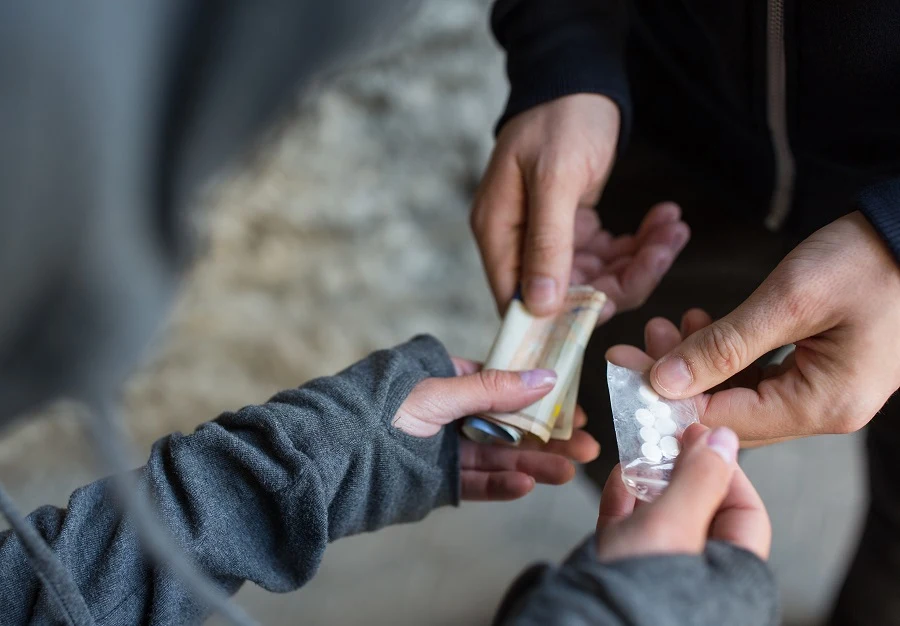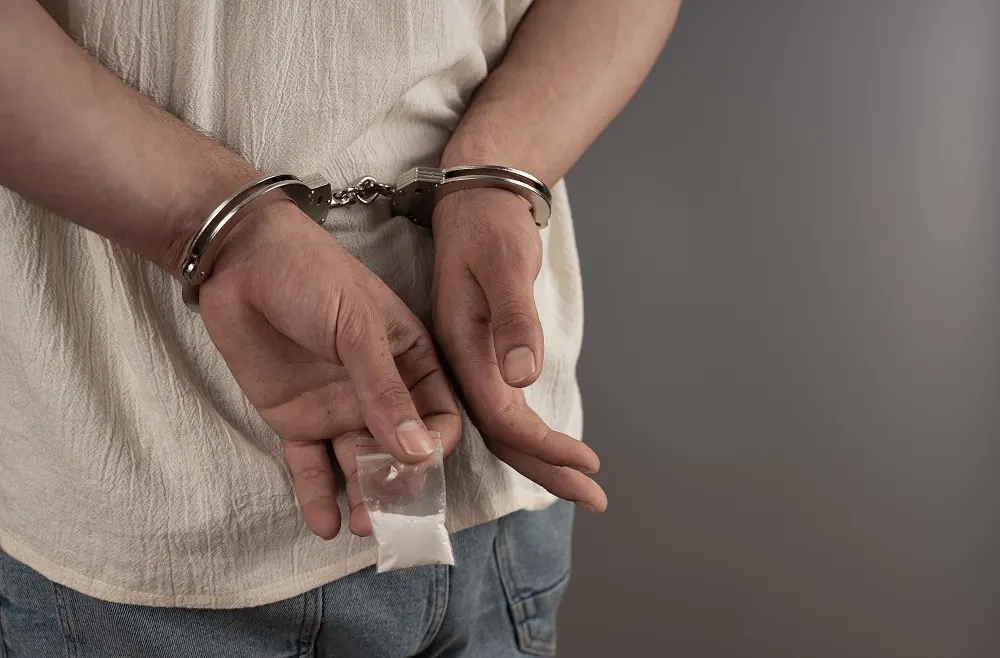Drug trafficking in Texas carries some of the most severe penalties in the United States. With strict drug laws and increased awareness around issues like fentanyl-related offenses, Texas has responded by enforcing harsh sentences for drug trafficking charges. In this article, we’ll explore drug laws in Texas, the types of penalties for trafficking different substances, and the support options available for those facing charges.
Understanding Drug Trafficking in Texas

Drug trafficking is defined as the illegal manufacturing, distribution, or sale of controlled substances. Texas law categorizes drugs into penalty groups based on their risk and potential for abuse, and the penalties for trafficking vary depending on the type of drug and the amount of drugs involved.
Penalties for Drug Trafficking in Texas by Severity
Texas Health & Safety § 481.112 classifies drugs into four main penalty groups, each with different sentencing guidelines.
Penalty Group 1 (Heroin, Cocaine, Methamphetamine, Fentanyl)
Penalty Group 1-A (LSD and Similar Hallucinogens)
Penalty Group 2 (Ecstasy, PCP, and Similar Hallucinogens)
Penalty Group 3 and Penalty Group 4 (Prescription Drugs with Potential for Abuse, e.g., Xanax, Codeine)
Recent Changes in Texas Drug Laws
In recent years, Texas has enacted new drug laws to address the state’s growing opioid crisis. Texas’s revised sentencing guidelines have introduced stricter penalties for certain drug offenses. Fentanyl-related offenses, in particular, now carry harsher penalties due to the high risk of overdose and death associated with synthetic opioids. Efforts to curb fentanyl trafficking are part of Texas’s broader strategy to enhance public safety.
Fentanyl Poisoning Awareness
Texas has declared Fentanyl Poisoning Awareness Month to raise awareness of the dangers of synthetic opioids. This awareness campaign has influenced policy changes and increased penalties for fentanyl-related trafficking.
Penalties for Specific Drugs in Texas
The penalties for illegal drug trafficking vary widely based on the drug type, reflecting the risks associated with each substance:
Marijuana Offenses
Though marijuana laws are gradually changing in some states, Texas maintains strict regulations. Trafficking large amounts of marijuana is classified as a felony and can lead to lengthy prison sentences and substantial fines.
Synthetic Opioids
Synthetic opioids like fentanyl carry the most severe penalties. Even small amounts can lead to felony charges, with penalties often including significant jail time.
Prescription Drug Importation
Importing or trafficking prescription drugs without authorization is a serious offense in Texas. Individuals caught selling prescription drugs, such as opioids or benzodiazepines, may face harsh penalties similar to those for illicit drugs.
Factors That Affect Sentencing in Drug Trafficking Cases

Several factors influence sentencing in drug trafficking cases in Texas, including the type and quantity of the controlled substance, whether the individual has prior offenses, and whether minors were involved in the offense.
Repeat Offenders
Repeat offenders typically face harsher sentences. Texas law allows for longer prison terms and higher fines for those with prior drug convictions, reflecting the state’s zero-tolerance policy on repeat drug trafficking.
Presence of Minors
If a minor is involved or present during a drug trafficking offense, the penalties increase substantially. Texas courts prioritize protecting minors and may impose the maximum sentence in cases involving children.
Diversion Programs and Drug Treatment Options

Texas offers diversion programs as an alternative to incarceration for certain offenders. These programs aim to address the root causes of drug trafficking, such as substance abuse or economic hardship, through rehabilitation rather than punishment.
Treating Drug Addiction
For offenders with underlying addiction issues, Texas courts may recommend drug treatment programs as part of sentencing. Rehabilitation programs provide an opportunity to address substance abuse and reduce the risk of future criminal activity.
Seeking Legal Guidance
Drug trafficking cases are complex, and having a legal team that understands Texas drug laws is essential. A good defense attorney can assess the evidence, identify procedural errors, and explore every possible avenue to protect your rights.
Rehabilitation and Systemic Changes
While Texas’s approach to drug trafficking remains stringent, there’s growing recognition of drug addiction as a health issue rather than simply criminal behavior. Texas aims to address systemic biases within the criminal justice system by offering rehabilitation options alongside traditional penalties.
When Faced with Drug Charges — Get a Lawyer
Drug trafficking charges in Texas come with severe penalties, ranging from jail time to significant fines. As Texas continues to tackle the opioid crisis and drug-related public safety concerns, penalties for trafficking certain drugs, like fentanyl, have become even more stringent.
If you or someone you know is facing drug trafficking charges, you will need an experienced criminal defense attorney at your side. Turnbull Legal Group has decades of experience defending clients against serious drug charges. Our dedicated team will examine every detail of your case and build a strong defense. We will work toward a fair outcome and explore available support options to address any underlying issues. Contact us today for a free consultation to discuss your options and to start securing your future.
You Don’t Have to Face Drug Charges Alone
We have decades of experience successfully defending against Texas drug charges. Don’t leave your future to chance. Contact us immediately to fight for your freedom.




.webp)

